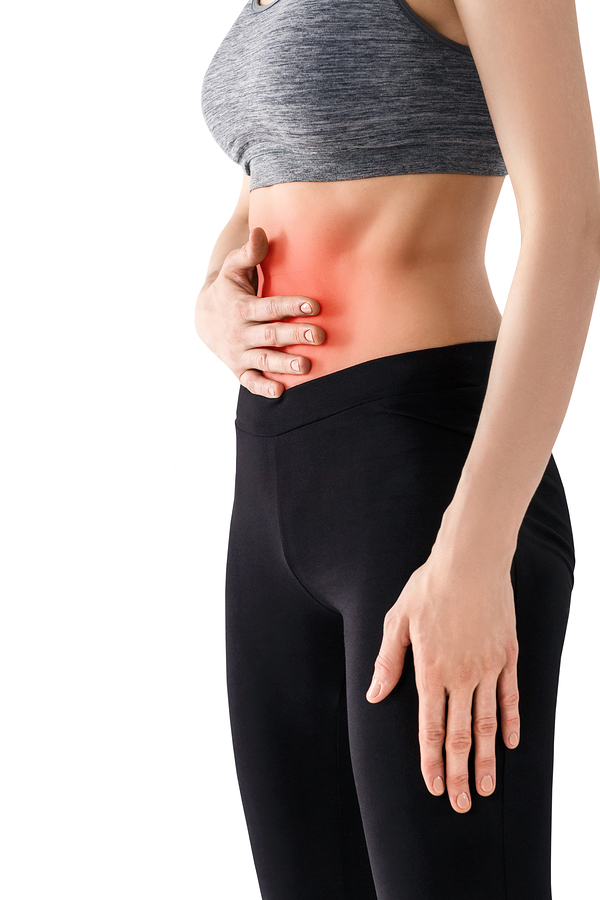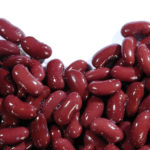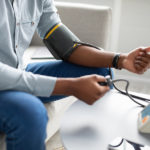By David Blyweiss, M.D., Advanced Natural Wellness
August 5, 2016
- Why are you always so bloated?
- Common digestive disorders can make you swell up like a balloon
- Beat the bloat with these simple tips
Nobody likes the feeling of being bloated. Whether you’re a man or a woman it’s flat-out uncomfortable. It doesn’t look very flattering either.
In many cases, the cause of bloat is surprisingly simple. You ate too much or too fast, slugged down a carbonated beverage or indulged in a heavily processed food.
Other times, it’s harder to pinpoint a cause. And if you frequently experience bloating, not knowing the source can be extremely frustrating. But that doesn’t mean there isn’t hope. In many cases, bloating is directly linked to digestive issues.
Some of these are easier to address than others.
For example, I find that gluten is one of the biggest offenders. This is something you’ll find in grains like wheat, barley, rye and all foods containing them. If you have a gluten sensitivity or intolerance, eating these foods can set off a chain reaction that leads to bloating and cramping.
A lot of folks also find that eating dairy products, fructose, certain types of fiber and sorbitol can make them feel like they’ve been blown up like a balloon. All of these contain indigestible sugars.
MD Exposes the Hidden Danger to Your Eyes

When your eyesight starts to fail, it's a real problem. Suddenly you can't go to the grocery store... you can't get to the doctor if you have an emergency... you can't meet your friends for dinner…
Your "regular" doctor doesn't have time to keep up with the latest research. And the same goes for eye doctors. They go to school to learn how to fit you for glasses and contacts, but have no way of preventing the damage and loss of eyesight that threatens your freedom and independence.
Let me show you something that explains a LOT about how your eyes work.
In my FREE Special Report, I'll show you a HUGE, untapped resource for your eyes that safely and naturally restores clear, effortless eyesight.
Click here to get started...
As these sugars are broken down and fermented by bacteria in your digestive tract, gas is released and bloating follows.
Other foods that contain indigestible sugars – and may cause bloating in some people – include beans, lentils and cruciferous vegetables like broccoli, Brussels sprouts and cabbage.
Now, identifying these food triggers and omitting them from your diet isn’t hard to do. It just takes a little detective work on your part.
But what if your bloat is caused by something more serious?
Common Digestive Disorders can Make you Swell Up Like a Balloon
One of the most common gastrointestinal problems here in the U.S. is irritable bowel syndrome, or IBS. As many as 90% of IBS patients report that they suffer from bloating. In fact, it’s one of their chief complaints.
Now, here’s the thing. Getting an IBS diagnosis can be tricky. Too many of the symptoms also apply to other gastrointestinal disorders. As a result, about three out of every four people with the syndrome remain undiagnosed!
This means that if you seem to be bloated more often than not, you could have IBS. This is especially true if you also experience unexplained diarrhea, constipation or abdominal pain… or all of the above.
Small intestinal bacterial overgrowth (SIBO), which may or may not accompany IBS, can also cause your abdomen to blow up like a balloon. Bloating, distension, discomfort and tightness often occur right after eating.
Are You Suffering From...
- Love handles and a pot belly
- Romance that isn't what it used to
- Forgetfulness and inattention
- Low (or no) strength and endurance
- A sex drive that's shifted into neutral...or worse
If so...you may have Mature Male Burnout. Click here to discover more about this unique condition and what you can do about it.
This condition occurs when bacteria from your colon settle into your small intestine. Once there, they feast on and ferment carbohydrates, producing gas in the process. It’s this gas that causes the symptoms of SIBO.
Now, I don’t know if you’ve noticed or not, but there is one common denominator associated with all of these common causes of bloating.
Getting Rid of Bloat: A Focus on Gut Bacteria
Your body shouldn’t have to work overtime to digest the foods you eat… only to have them turn them against you later.
What it all boils down to is your gut microbiota. Many of the foods we eat today,as well as prescription medications and OTC drugs can severely disrupt the equilibrium between good and bad bacteria. But there are ways to restore that delicate balance.
Removing processed foods, GMO foods, dairy, fructose, artificial sweeteners and foods that contain gluten is your first step. Replacing them with healthier fare is your second.
Water-rich fruits and vegetables are a good choice. These can do two things for you.
First, they contain digestive enzymes that help break down your food. Second, they act as a diuretic to help flush retained waste and excess water out of your system.
A few water-rich foods you can add to your arsenal include melons, berries, celery, cucumber and artichoke.
Eating more probiotic foods, like natto, sauerkraut, kombucha, miso and kimchi can help, too. These foods help increase the population of good bacteria in your gut.
I also recommend taking both a digestive enzyme and probiotic supplement.
Your digest enzyme should contain amylase, protease, lipase, maltase, cellulose and sucrase. As far as the probiotic goes, look for one that contains a prebiotic along with lactobacillus, bifidobacteria and other strains of healthy bacteria. The higher the colony count, and the more diverse strains involved, the better off you’ll be.
Additionally, there are two potent antioxidants that can help restore the health of your micriobiome. One of them is emulsified oregano extract up to 100 mg daily with food. The other is allicin extract (from garlic) 450 mg twice daily with food.
Both of these have the power to fight off harmful bacteria like staphylococcus and e.coli that have taken up residence in your digestive tract.
SOURCES:
Marasco G, et al. Gut Microbiota and Celiac Disease. Dig Dis Sci. 2016 Jun;61(6):1461-72.
Agrawal A, et al. Review article: abdominal bloating and distension in functional gastrointestinal disorders–epidemiology and exploration of possible mechanisms. Aliment Pharmacol Ther. 2008 Jan 1;27(1):2-10.
Lacy BE, et al. Pathophysiology, Evaluation, and Treatment of Bloating. Hope, Hype, or Hot Air? Gastroenterol Hepatol (N Y). 2011 Nov; 7(11): 729–739.
Arcila-Lozano CC, et al. Oregano: properties, composition and biological activity.[Article in Spanish] Arch Latinoam Nutr. 2004 Mar;54(1):100-11.
- M. Ross, et al. Antimicrobial Properties of Garlic Oil against Human Enteric Bacteria: Evaluation of Methodologies and Comparisons with Garlic Oil Sulfides and Garlic Powder.Appl Environ Microbiol. 2001 Jan; 67(1): 475–480.








The Medical Medium says SIBO and IBS are caused by streptococcus bacteria.
https://soundcloud.com/medicalmedium/streptococcus-revealed